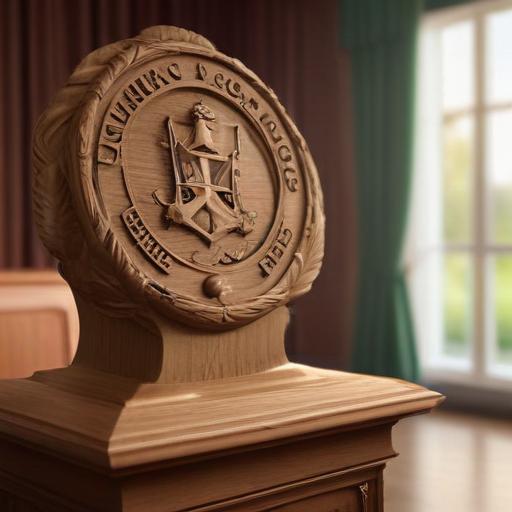Headline: Florida taps Dr. Donald Landry as interim UF president as search for permanent leader resumes in 2026
Summary: The University of Florida’s Board of Trustees voted to appoint Columbia University physician and researcher Dr. Donald Landry as interim president. The Florida Board of Governors must still confirm the appointment. The university will begin its search for a permanent president in early 2026, after the rejection of Santa Ono as the sole finalist for the role earlier this year. Interim President Kent Fuchs’ contract extension runs through September, keeping leadership in place during the transition.
The University of Florida is moving forward with a temporary leadership change after a summer of upheaval in the university’s presidential search. On August 25, UF’s Board of Trustees voted to appoint Dr. Donald Landry, Hamilton Southworth Professor of Medicine at Columbia University, as interim president. Landry, who has led extensive medical and research initiatives at Columbia and NewYork-Presbyterian/Columbia University Irving Medical Center in the past, will now oversee UF during the next phase of the search for a permanent president.
The decision comes after the Florida Board of Governors rejected the university’s previous finalist, Dr. Santa Ono, in June, marking the first time the BOG declined to confirm a candidate proposed by a university board. With Ono’s candidacy halted, UF’s leadership faced a delay, and interim leadership was extended. Kent Fuchs has served as interim president since August 1, 2024, following the abrupt resignation of Ben Sasse after 17 months in the role and had his contract extended by one month as the university sought additional time to identify a successor.
Landry’s appointment requires confirmation by the Florida Board of Governors. Landry’s career spans roles including physician-in-chief at New York-Presbyterian/Columbia University Irving Medical Center and leadership positions within numerous professional societies. He holds 50 patents and has been elected to the National Academy of Inventors, reflecting a strong record of biomedical research and innovation.
During UF trustees’ questioning at Emerson Alumni Hall, Landry addressed topics tied to campus governance, including his views on antisemitism, free speech in relation to protests, and diversity, equity and inclusion programs. He described DEI as unclear and evolving, stressing the importance of merit in addressing challenges—an answer that drew attention given ongoing debates around campus climate and inclusion policies.
Landry also commented on UF’s athletic success, noting his background as a competitive runner and his belief that UF’s excellence in athletics complements its research and teaching missions. He highlighted the university’s consistent pursuit of excellence across research, teaching, and clinical care.
Looking ahead, UF plans to begin a search for a permanent president in early 2026. The process will be conducted under confidentiality to attract top candidates, a choice UF trustees defended amid calls for greater openness from state leaders. Trustees noted that confidentiality can help secure candidates who might not participate if the process were fully public, even as lawmakers and other observers push for more open procedures.
Why this matters: UF’s interim leadership shift comes at a pivotal moment as the university balances high-stakes construction projects, campus climate considerations, and the ongoing search for a president who can steer the institution through evolving national higher-ed priorities. Landry’s appointment provides immediate stability while allowing time for a broad, open-ended national search for a long-term leader.
Additional notes and commentary:
– The interim appointment underscores UF’s emphasis on strong research leadership as a precursor to a permanent appointment, signaling a continued focus on bipartisan, merit-based institutional strengths.
– Landry’s public remarks about DEI may influence how the university frames its next presidential search and campus policy discussions, particularly around diversity, inclusion, and free expression.
– The ongoing tension between transparency in the search process and the goal of attracting top-tier candidates remains a central theme in Florida public higher education governance.
Potential implications for readers:
– UF’s research ecosystem and patient-care initiatives may benefit from stable leadership during a time of major clinical and academic expansion.
– Prospective candidates for the permanent presidency may view the confidentiality framework as both a tool to attract top talent and a point of public policy discussion regarding governance openness.
Summary: UF has appointed Dr. Donald Landry as interim president while its Board of Trustees leads a search for a permanent leader set to begin in early 2026. The Florida Board of Governors must confirm Landry’s interim role. This move follows the rejection of the previous finalist, Santa Ono, and continues UF’s transition after interim leadership by Kent Fuchs.
Logical commentary: This transition prioritizes continuity and a strong academic leadership profile, given Landry’s extensive biomedical and administrative experience. The confidentiality approach to the search aims to attract top candidates but will likely keep public stakeholders watching closely for progress and transparency signals as the university navigates campus climate, DEI policy debates, and major capital projects. The outcome could shape UF’s strategic direction for years to come, with implications for research funding, faculty recruitment, and campus culture.
